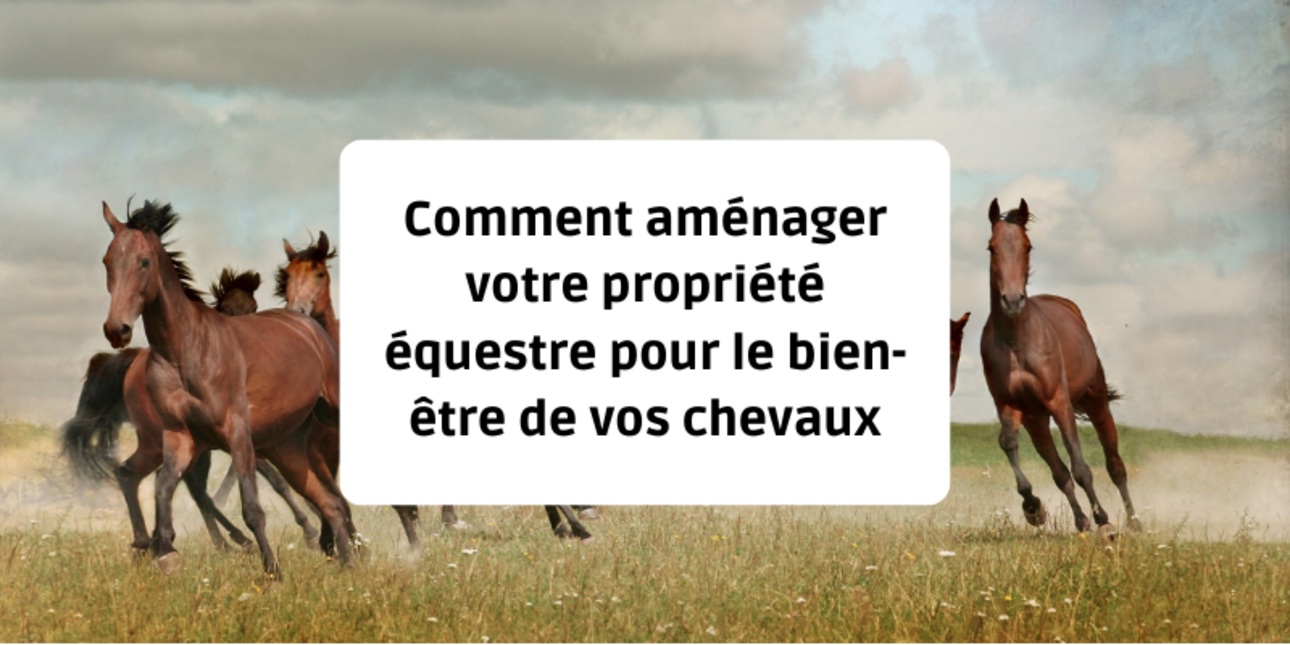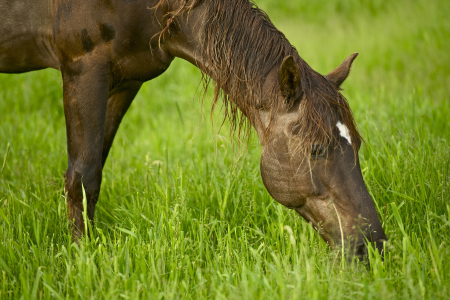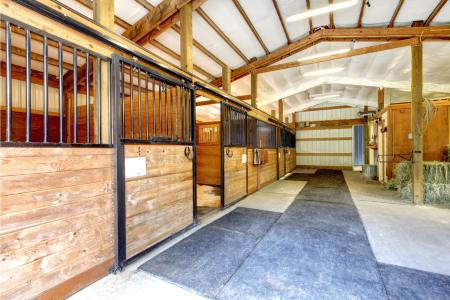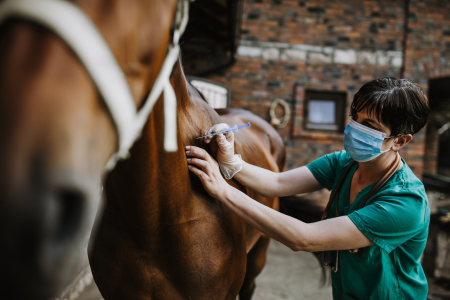
The well-being of horses is a central concern for all equestrian enthusiasts. The proper layout of your equestrian property is one of the most effective ways of ensuring their well-being. While this may seem obvious, it's hard to know what to do about it. In this article, we'll guide you through the various points to consider.
First of all, it's essential to define what well-being means for a horse: living in a meadow with other horses, in a stall with maximum attention and care, with suitable riding conditions? To answer this question, we need to understand the horse's needs and the sources of its discomfort.
Two elements are essential to equine well-being: physiological needs and behavioral needs.
From a physiological point of view, a horse's well-being requires appropriate feeding and watering, quality boarding and the preservation of the horse's health.
From a behavioral point of view, we must first understand that the horse is a group animal living in the wild. It therefore needs social contact with other horses and to live outdoors. They also need daily locomotor activity.
A life outdoors in the company of other horses is therefore undeniably one of the factors in a horse's well-being.
A horse in poor health is bound to be in a diminished state of well-being. Every horse owner needs to know his or her horses well enough to determine their situation at any given time. He must observe and appreciate the horse's general appearance: stature, coat, weight, eyes, gait, etc.
It's also important to avoid stress, which is undoubtedly the horse's 1st enemy and a source of health and behavioral problems.
Owning a horse involves not only administrative and regulatory obligations, but also duties relating to animal welfare. The law prohibits the mistreatment of animals, on pain of legal sanctions.
Article L 214-1 of the French Rural Code states that "All animals are sentient beings and must be kept by their owners in conditions compatible with the biological requirements of their species.
This provision and the following articles thus prohibit owners:
Failure to comply with the regulations can result in fines and penalties, up to and including a ban on keeping animals.
The Equine Welfare Charter was adopted by equine industry professionals (the Fédération Nationale du Cheval, the Association Vétérinaire Équine Française, the Fédération Française d'Équitation, France Galop, the Groupement Hippique National and Le Trot, drawing on the expertise of the Institut de l'Élevage).
Built around 8 measures, it aims to ensure that all professionals share a common vision of equine well-being.
The Charter is available on the Fédération Française d'Equitation website.
Download the Equine Welfare Charter
The Institut Français du Cheval et de l'Equitation (IFCE), in collaboration with the Institut National de la Recherche pour l'Agriculture, l'Alimentation et l'Environnement (INRAE) and the University of Milan, has developed the Cheval Bien-être protocol.
It enables you to assess your horse's state of well-being using 12 criteria relating to its diet, accommodation, health and behavior.
An application has been developed and can be downloaded from the Apple and Google stores.
The question of the horse's well-being is also accompanied by consideration of the well-being of the horse's caretaker and user.
The horse's living conditions must enable it to meet the following needs:

The working conditions of the groom must also be taken into account in the layout of your equestrian property, in particular through the organization of feeding, bedding and care tasks.
The layout of an equestrian center, an owner's stable or a stud farm must take into account the well-being of the horse, taking into account the specific features of each of these equestrian properties.
Poor working conditions for the groom will inevitably have a negative impact on your horse's well-being.
Finally, the layout of your equestrian property will need to take into account the use to which the horse will be put, to avoid any stress in its handling (especially transport). The technical capabilities of the staff responsible for working with horses must also be taken into account, so that they can carry out their work in the best possible conditions. The judicious allocation of indoor and outdoor areas (covered riding arenas, outdoor areas, quarries, etc.) will enable them to carry out their activities successfully.
There are several types of accommodation available for horses.
The individual stall makes it possible to personalize the horse's diet and care, and facilitates its handling and cleanliness. However, individual stalls give the horse less room to move around, and can have adverse effects on behavior (notably by reducing contact with other horses).
Group housing in stalls encourages social contact and can reduce the work involved in going out, but poses problems for aggressive animals and, from a health point of view, can present particular difficulties (contagion, etc.).
Open-air or semi-open-air housing meets the horse's daily activity needs. The distance from the stabling can make handling difficult. Unless a large area of meadow is available, paddocks are not sufficient to cover nutritional needs, and will therefore require additional facilities and considerable handling of forage.
New types of accommodation are being developed, such as active (or dynamic) stables, which give horses total freedom of movement and have a very positive effect on their well-being.
In the wild, a horse spends up to 16 hours a day feeding. Access to grass or forage must therefore be available for long periods throughout the day.
The horse must also have free access to clean water. Automatic drinking troughs with anti-freeze systems are therefore essential.
A horse needs to move around for its well-being and health (blood circulation). Daily access to outdoor space is therefore essential.
In the wild, horses live in groups, which is essential to their well-being. Group housing in stalls is the answer to this need. In individual stalls, horses need to be able to see and feel each other between stalls.
However, horses need to be accustomed to being separated from the group in order to reduce stress during handling, transport, etc.
 The conditions in which your horse is housed are crucial to its health and hygiene. The building's environment must meet requirements in terms of temperature, ventilation, humidity, light, noise, floors, etc., and facilitate litter changes and manure management.
The conditions in which your horse is housed are crucial to its health and hygiene. The building's environment must meet requirements in terms of temperature, ventilation, humidity, light, noise, floors, etc., and facilitate litter changes and manure management.
Setting up your equestrian property requires a thorough understanding of your horse's needs. He will need accessible feed, space for bodily activity, contact with other animals and daily care. The facilities to be built must take these needs into account, and make work easier for the groom.
In view of the many points to be taken into account, the construction of equestrian buildings requires specific skills, and we can only advise you to call on the services of professionals.
Before buying an equestrian property or a rural estate with farmland to develop your equestrian estate, it is therefore essential to consider the needs of your horses and the facilities to be provided.